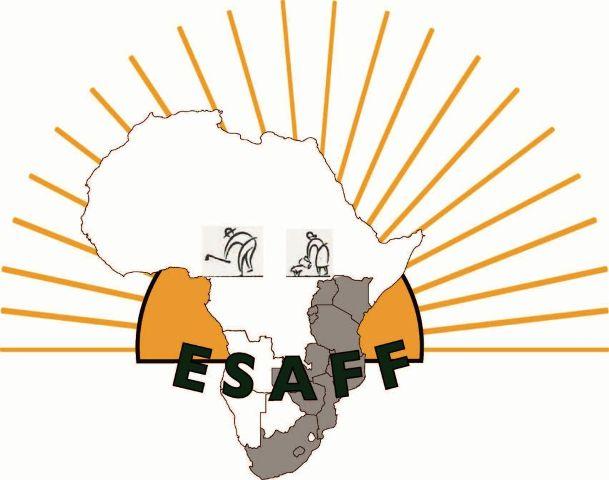ESAFF Declaration on the current state of food and agriculture policy in eastern and southern Africa

31/08/2011
We the small scale farmers (crop growers, livestock keepers and fisher folk) of the Eastern and Southern Africa (ESA) region met recently in Morogoro, Tanzania, including delegations from Tanzania, Kenya, Uganda, Rwanda, Burundi, Malawi, Zambia, Zimbabwe, Lesotho South Africa, Madagascar and Seychelles.
RECALLING African governments’ initiatives to invest in agriculture as per the Maputo Declaration of 2003, the Dar es Salaam Declaration on agriculture and food security of 2004 and Sirte Declaration of 2009 on investing in agriculture for economic growth and food security:
COMMENDING efforts to support agriculture through the AU/NEPAD- Comprehensive Africa Agriculture Development Programme (CAADP) in various countries:
AWARE thatthe CAADP Compact agreements signed by our countries are leading to increased resources in the agriculture sector and have the potential to increase the involvement of smallholder farmers in agriculture policy processes;
NOTING that despite the commitment to increase national agriculture budgets to 10% by 2009 and to ensure annual growth of the sector by 6%, few countries in the ESA region have reached these goals. Moreover in most countries where there is a significant increase of the budget, the growth of the sector is still less than 6%;
CONCERNED that national agriculture development programmes mostly depend on external funding, hence the local agendas become heavily influenced by funders from China, USA, EU with emphasis on exports cash crops and dependence upon fossil-fuel based inputs;
FURTHER CONCERNED that the neo-colonial global agrochemical companies are capturing African agriculture, from seeds through to markets, by introducing genetically modified seeds (GMOs), pesticides and chemical fertilizers. This further threatens farmer independence on seed production that has already been eroded by hybrid seed and jeopardizes African agricultural biodiversity and food sovereignty;
OBSERVING the negative trend in which many foreign multinational companies and foreign states influence our leaders to cede our land for production of export cash crops, biofuels and carbon credits which are not beneficial to the local populations;
ARE THEREFORE CALLING FOR
1. East and Southern African governments to focus their support on small scale farmers because we are the major producers of food as well as industrial raw materials for our local industries and for export. The promoted model of monoculture agriculture will not benefit smallholder producers; instead “agriculture investors” will mine the fertile soils which are still available in Africa and leave our environment degraded and polluted. Governments must regulate agribusiness instead of offering tax breaks for ecological plunder masquerading as economic development.
2. We demand all governments to increase agriculture budgets to the committed 10% of their national budgets as per their Maputo Declaration of 2003. We feel that this it is a mockery that this level was supposed to be reached by 2009 but has been extended to 2015 following the Sirte Declaration.
3. We call for Regional Economic Groupings (RECs) in our region: COMESA, SADC, and EAC to sign and domesticate CAADP COMPACT as the ECOWAS has done. The RECs should set goals and have clear monitoring tools towards achieving the 10% budget allocation and 6% growth. EAC and SADC have never signed CAADP and some regional action plans.
4. CAADP programme implementation should involve small scale farmers, our opinion and observations should be taken into account to realize sustainable agro-ecological agriculture development which is meaningful to Africa. All these initiatives must widely inform and include opinions of the real practitioners of small scale crop, livestock and fish production.
5. We call on CAADP processes and finance to give special attention to gender and especially women who are the majority (70%) of food producers in our region. We need access to usage and ownership of land, together with appropriate technology
6. African governments must to increase public investment from within our national budgets to support small scale farmers who are the majority of food producers in our eastern and southern Africa region. Resources from foreign donor should support the implementation of the national programmes.
7. African governments and civil society should monitor the multinational agro-chemical corporations with their various strategies for penetrating their technologies into our production systems, for example by funding our research institutions various agriculture projects with the long term objective of imposing Bt cotton, cassava and genetically modified maize in our region.
8. Agriculture research funding should prioritise research into indigenous seed and breed varieties that can withstand climate variability and are prized for their taste and nutritional value.
9. Authorities must ensure that the agriculture budget is reaching and benefiting small scale farmers in the villages and not consumed in recurrent expenditure which benefits only government officials.
10. We are convinced that agro-ecological agriculture is the answer to future food security as the UN Special Rapporteur on the Right to Food, Olivier de Schutter has demonstrated in a series of reports since 2009. These reports show that agro-ecological farming model can double agricultural production in 10 years and reduce hunger in Africa whilst protecting and even enhancing the natural environment.
Produced at the General Summit of Small Scale farmers in Eastern and Southern Africa, in Morogoro, Tanzania
Moses Shaha, ESAFF Chairperson,
Tel. +254724281610
E-mail: esaff@esaff.org, Website: www.esaff.org






















